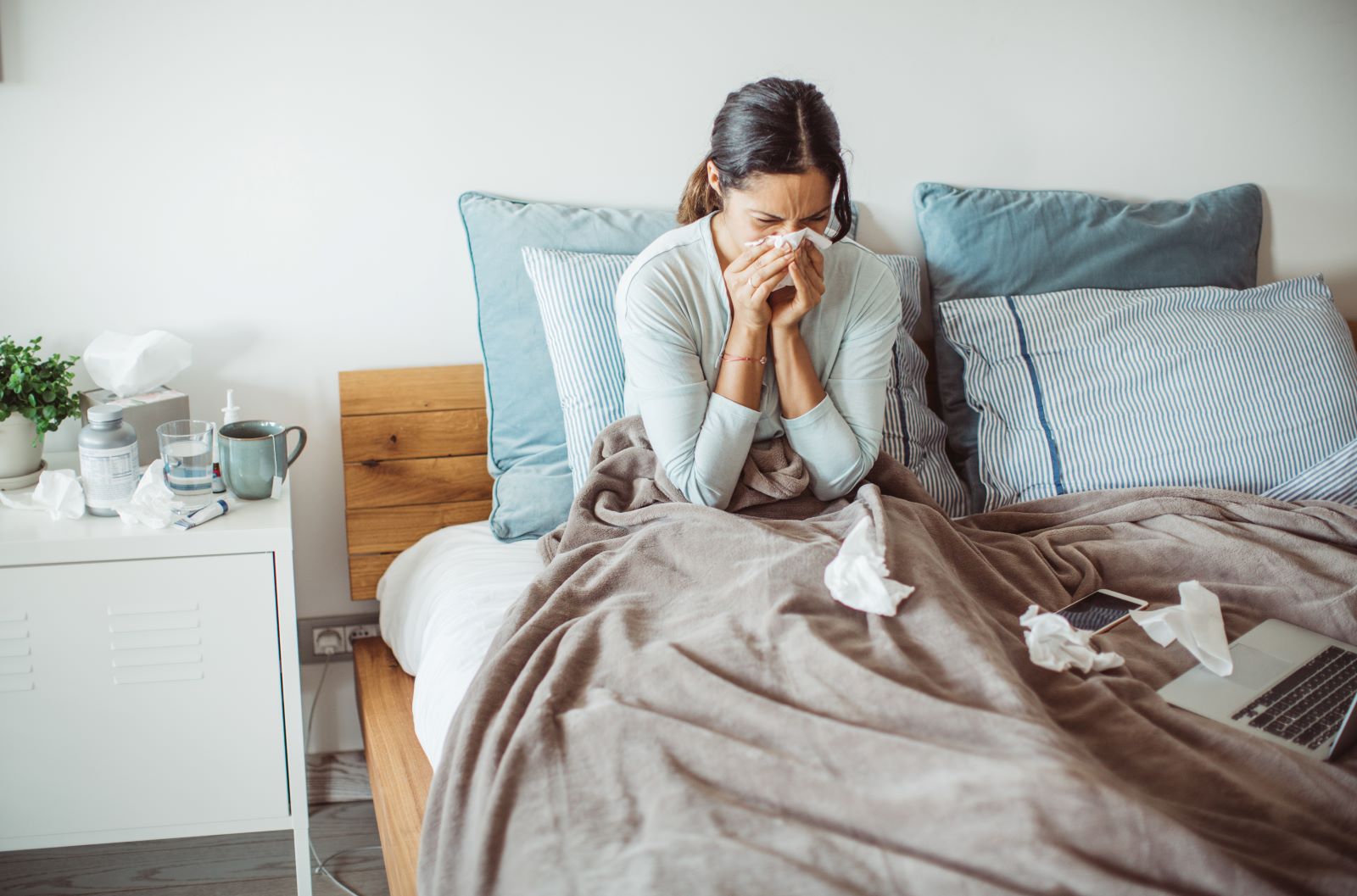<< Back
What Is “Rebound COVID” and Who’s At Risk?

August 03, 2022
No, your newsfeed isn’t broken. On July 30, 2022, President Joe Biden tested positive for COVID-19 —again. The announcement came days after Biden was cleared to end his isolation period and resume normal activities, including attending events without a mask.
It’s the latest example of “rebound” COVID positivity.
What does it mean for Connecticut?
> Find the latest COVID-19 information here.
What is a COVID rebound case?
Back in May, the CDC put out an advisory: Two to eight days after completing Paxlovid treatment and testing negative, a small percentage of people had signs of COVID again.
“A very small percentage of patients who take Paxlovid for COVID-19 may have a recurrence of their symptoms after getting better,” says Henry Anyimadu, MD, FACP, chief of infectious disease for Hartford HealthCare’s Central Region. “Some may even test positive again after testing negative. This phenomenon is called ‘rebound COVID-19.’”
These cases — also called “COVID recurrence” — don’t usually cause severe disease. But they mean that people who thought they were no longer contagious could still infect others.
What’s the connection between COVID recurrence and Paxlovid?
Paxlovid, the antiviral drug prescribed to people at high risk for severe COVID, is part of most COVID rebound stories. In June, that included Biden’s chief medical adviser, Dr. Anthony Fauci. Now it includes Biden himself.
Despite the high-profile coverage, experts say the rate of Paxlovid rebound is small. Recently, the White House noted that only about 5 percent of Paxlovid recipients experience COVID recurrences. Because it’s difficult to self-diagnose a rebound case, other experts say the number may be higher.
What causes a rebound infection?
Currently, scientists are still working to understand this question. One theory is that patients who experience rebounds had a particularly high viral load in their body — too much for the five-day Paxlovid treatment to fully clear.
Is rebound COVID the same as long COVID?
In short, no.
Rebound COVID is diagnosed in the short-term: You test positive or have recurring symptoms within days of completing treatment (two to eight days, specifically). Long COVID refers to symptoms at least four weeks post-infection.
“Long COVID is the persistence of COVID-19 symptoms following an acute illness,” explains Dr. Anyimadu. “Patients may have all or some of their COVID symptoms, including physical and mental symptoms that can persist for months.”
So far, scientists haven’t found any clear connection between the two.
> Think you might have long COVID? Call the COVID Recovery Center at 860.827.3200.
How many COVID rebounds are there in Connecticut?
There’s no public record of COVID rebound cases in Connecticut.
Why? It’s a tough number to pin down, because diagnosing a COVID recurrence requires a positive test, then a negative test, then a positive test again. Many people recovering from a mild infection, or who aren’t worried about a COVID recurrence, don’t go to the trouble of all that testing.
Here’s what we do know: According to the New York Times, last week about 850 people in Connecticut tested positive for COVID each day. A small percentage would have taken Paxlovid. And a small percentage of them could have rebound cases — whether or not they realize it.
How can I avoid infecting someone else, or getting infected, with a rebound case?
The prevailing advice comes down to common sense and healthy habits.
If you:
- Are recovering from COVID, test frequently and pay attention to how you’re feeling.
- Notice new symptoms, self-isolate and talk to a doctor or take a COVID test.
- Have symptoms that resurface, or you test positive, follow the CDC’s recommendations: five days of isolation and 10 days of mask-wearing.
- Took Paxlovid or another medication, err on the side of extra caution for all of the above.
“Patients who have experienced rebound COVID-19 should isolate again, as they can still transmit the virus to others,” says Dr. Anyimadu.